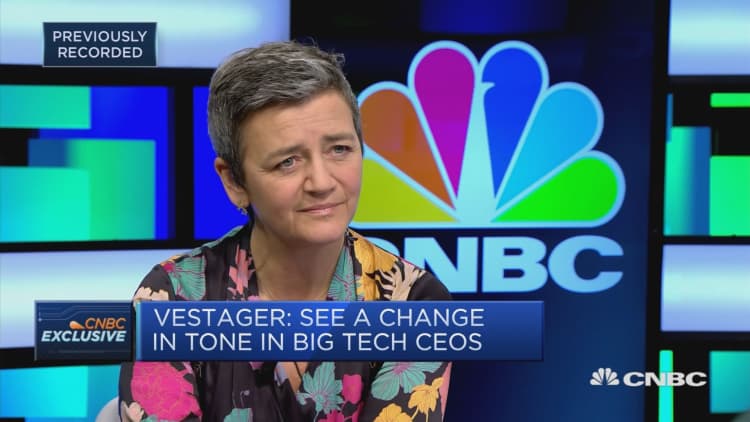The U.K. government has denied a report that it plans to end a tax on digital companies to help it secure a trade deal with the U.S.
A report in the U.K. newspaper, the Mail on Sunday, said Finance Minister Rishi Sunak was looking to reverse a recent decision over a digital tax in order to please American companies and politicians, and to help both nations reach a trade deal.
However, a spokesperson for the U.K. Treasury told CNBC Monday: "We've been clear it's a temporary tax that will be removed once an appropriate global solution is in place – and we continue to work with our international partners to reach that goal."
The U.K. government had said previously, despite pressure from the United States, that it would only replace its digital levy once there was an international agreement on how to tax digital giants — something that has not yet happened.
The U.S. has criticized the levy on different occasions and decided in June to start a formal probe into countries with digital taxes or those looking to implement one, including the U.K., Italy and Brazil. The U.S. administration believes that a digital tax disproportionally impacts American companies.
Previously, the U.S. threatened to impose additional duties on French goods after France became the first major economy to legislate a digital services tax. As a result, the French government decided to postpone collecting payments until 2021.
The idea was to develop an international agreement at the Organization for Economic Cooperation and Development (OECD) in the meantime. However, these negotiations seemed to have stalled after the U.S. decided to pull out of talks in June.
In January, President Donald Trump said he was keen to negotiate a "tremendous" new trade agreement with the U.K.



